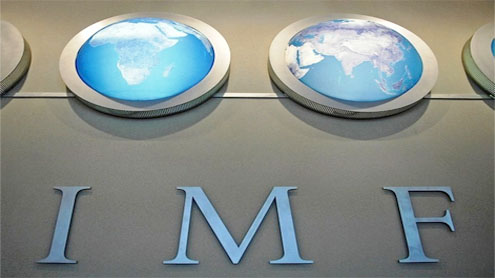 The IMF’s forecasts predict the fiscal deficit and inflation to remain above target for the current financial year, with overall growth below target.
The IMF’s forecasts predict the fiscal deficit and inflation to remain above target for the current financial year, with overall growth below target.
Its report entitled ‘Regional Economic Outlook: Middle East and Asia’ has forecast the fiscal deficit for 2012 at 5.3 percent, which would be well above the target of four percent set by the government. It has predicted a deficit of 6.5 percent for the current fiscal year, and then 5.3 percent. The GDP growth, according to the report, is predicted to be 2.6 percent in 2011, and 3.8 percent in 2012, though the government had targeted 4.2 percent growth for the current fiscal.
At the same time, inflation would remain high, at 13.9 percent in 2011 and 14 percent in 2012. Perhaps, inevitably, the IMF predicted a worsening of the foreign exchange position, with both foreign exchange reserves and the current balance account balance suffering as a result.
Pakistan may have come off an uncompleted IMF programme, but it still seeks a Letter of Comfort from it, which the World Bank and the Asian Development Bank have made a condition for further lending to Pakistan, and for which it will engage in Article IV consultations next month. Thus the IMF forecast is of significance because of its intrinsic value, indicating where the economy is going. The worrying prediction that inflation is not likely to come below the punitive double-digit level is going to mean that growth and job creation for a burgeoning population will be unlikely. Some of the loss in growth may be ascribed to the monsoon floods, but that is a perennial factor.
The IMF is likely to suggest measures like ending power subsidies, further raising power tariffs and introducing a VAT, as the price of its Letter of Comfort. Faced with such a situation, a government is supposed to control expenditures, which means stopping its members from living luxurious lifestyles at taxpayers’ expense, and increasing revenue by taxing those sectors currently exempt because they are over-represented in the legislatures on either side of the party divide.
Unless the government is willing to take hard decisions, which affect its legislators too, and not just the common man, as has happened so far when the phrase has been used, on both the expenditure and revenue sides, neither will the deficit be remedied, nor growth approach the sort of levels that Pakistan needs to progress to prosperity. The best way out of Pakistan’s current economic chaos is to stop looking to the international financial institutions and start relying on our own resources. – Nation












